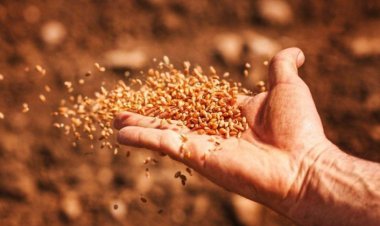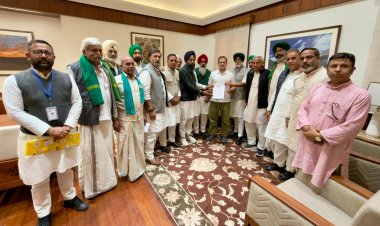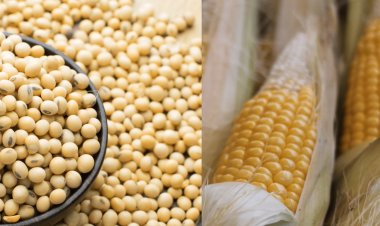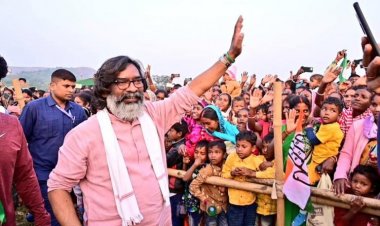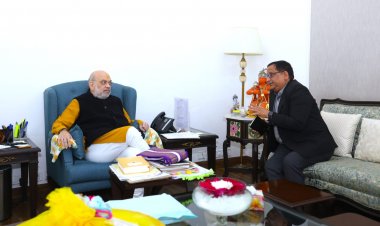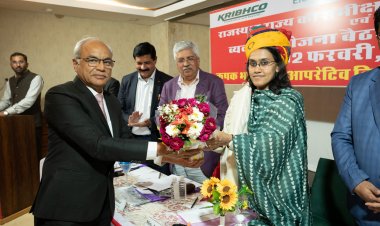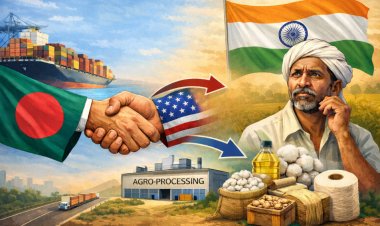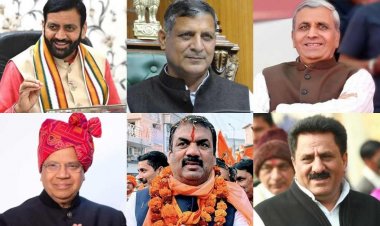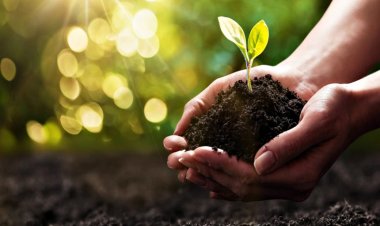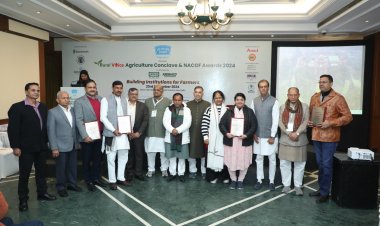Transition to sustainable agriculture vital for water, food security: UN Agencies
The Food and Agriculture Organization of the United Nations (FAO), the International Fund for Agricultural Development (IFAD) and the United Nations World Food Programme (WFP) marked World Food Day calling for sustainable water management to ensure food and nutrition security in India.
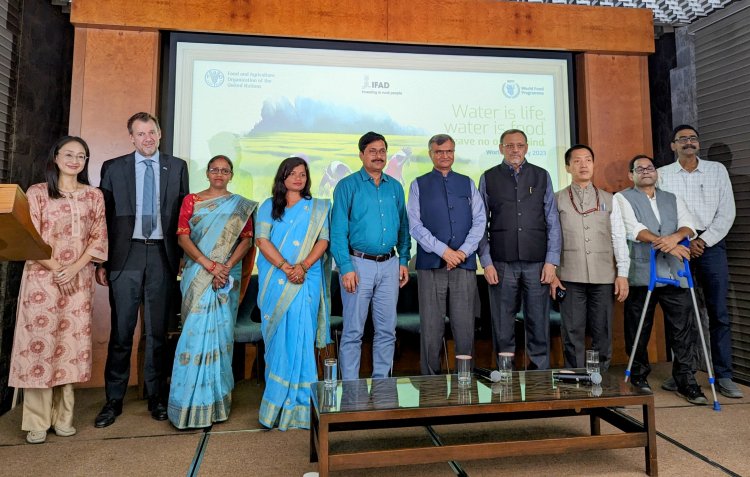
The Food and Agriculture Organization of the United Nations (FAO), the International Fund for Agricultural Development (IFAD) and the United Nations World Food Programme (WFP) marked World Food Day calling for sustainable water management to ensure food and nutrition security in India.
India, home to 18 percent of the world’s population, has only four percent of its water resources, making it among the most water-stressed countries in the world. Groundwater accounts for 40 per cent of India’s water needs and is depleting at an unsustainable rate. Indeed, India is the world’s largest groundwater extractor--accounting for 12 per cent of global extraction.
A NITI Aayog report said that without mitigation measures, India faces a six percent loss in GDP by 2050, when the water demand will exceed the supply. Considering this, at an event held to commemorate World Food Day, the UN food agencies (FAO, IFAD, and WFP) emphasised the urgent need for India to accelerate a transition towards an agri-food system that is more sustainable, resilient and uses water more efficiently.
Ramesh Chand, member NITI Aayog, and chairman of the Institute of Economic Growth, New Delhi, delivered a keynote address and chaired a panel discussion on the challenges – and potential solutions -- of ensuring water availability for food and nutrition security in India.
In his keynote address, Prof Chand reaffirmed India’s commitment to achieving food security for all. “The first thing to address any problem is to sensitise the stakeholders and sensitise the societies. There is time for action now; if we act, we can address this water problem. But if we do not act at this stage, it will be too late,” he said.
The panel, which comprised Archana Varma, Additional Secretary and Mission Director, National Water Mission, Ministry of Jal Shakti, Franklin L. Khobung, Joint Secretary, Ministry of Agriculture and Farmers’ Welfare, and Alok Sikka, India Country Representative, International Water Management Institute, discussed strategies to ensure a sustainable and secure future for food and nutrition in India while preserving water resources and the environment.
“With the extreme climate patterns and depleting groundwater resources, focus on protection, conservation, and mindful use of water for agriculture has become necessary. As a leader of the Global South, the Government of India understands the issues related to water – and its utmost importance in agriculture and food security. FAO’s focus is to advocate and support the sustainable transformation of agri-food systems and climate-smart agriculture practices to improve water efficiency in India,” said Takayuki Hagiwara, FAO Representative in India.
Ulac Demirag, India Country Director and Representative, IFAD, said, “Extreme weather events and variability in water availability are severely affecting agricultural production, changing agro-ecological conditions, and shifting growing seasons. Changes in rainfall and higher temperatures also affect crop productivity, reducing food availability.
IFAD is supporting the government to make food systems more sustainable and resilient to extreme weather conditions, emphasising improving the livelihoods of smallholder farmers, so that food travels uninterrupted from farm to table all year long.”
“Food security has been in the spotlight, but too often we forget that there is no food security without water security,” said Elisabeth Faure, Representative and Country Director, WFP India. “WFP, together with our partners, is working on innovative approaches to enhance resilience through solar technologies, establish community-based climate advisory services to help manage climate impacts and promote a millet-value chain that reduces water usage and improves nutrition.”
Community voices were also amplified at the event through video storytelling and a special session with Jal Sahelis Neelam Devi and Manju Lata Kuril, water warriors from Uttar Pradesh’s Bundelkhand region who are sounding a clarion call for water security in their communities.
These women make water available and accessible through water resource planning, management, and conservation. Jal Sahelis have repaired handpumps, built check dams with government allocations and organised ‘shramdan’, or voluntary contributions by the community, to revive traditional ponds in villages. Communities and local food systems can be protected by restoring water resources, digging irrigation canals and rebuilding natural barriers against climate extremes.



 Join the RuralVoice whatsapp group
Join the RuralVoice whatsapp group

















